Luca
& David
Run by Luca Antonucci and David Kasprzak, Colpa Press is a publishing company and collaborative art practice in San Francisco. Specializing in hand-made art books, limited edition prints and art objects, their works can be found in some of the most prestigious arts institutions in America. Although the duo typically works out of a studio called the Basement, they’ve spent the shelter in place alternating between at-home design and in-studio printing, using the extra time at home to advance some exciting new personal projects.
Collaborating from afar
Co-owners of Colpa Press
Above
Luca and David at
the entrance to Colpa
Tell us a bit about yourself
12 MAY 2020 LA: My name is Luca Antonucci and I’m from San Francisco. Well, I moved here from Italy when I was 13 but this place feels like my home and I’m 36, so I guess I’ve been here 23 years, with brief stints in other places. I run Colpa with David Kasprzak. We are a print, design and publishing house that specializes in art books and prints. I founded Colpa in 2011 with Carissa Potter. We worked together until 2013, I worked alone for a year and I met David in 2014. We’ve been full-time since then. David and I are both artists so whether it’s client work or our publishing projects, we approach each project from that perspective. Thinking about production and design as one and the same. I try to bring my experience as a printer into our projects and I think David does that with design as well but at the end of the day, we try to think about the best way to make anything and sort of work backwards from there.
DK: My name is David Kasprzak, and I moved to San Francisco in 2005. After moving around a lot I’ve somehow stayed planted in SF for 15 years, apart from overseas residencies here and there. Before working with Luca I was an art curator and often designed my own exhibition identity and catalogs. This is what lead to an interest in books. Research, design, and print have always been part of my personal art practice.
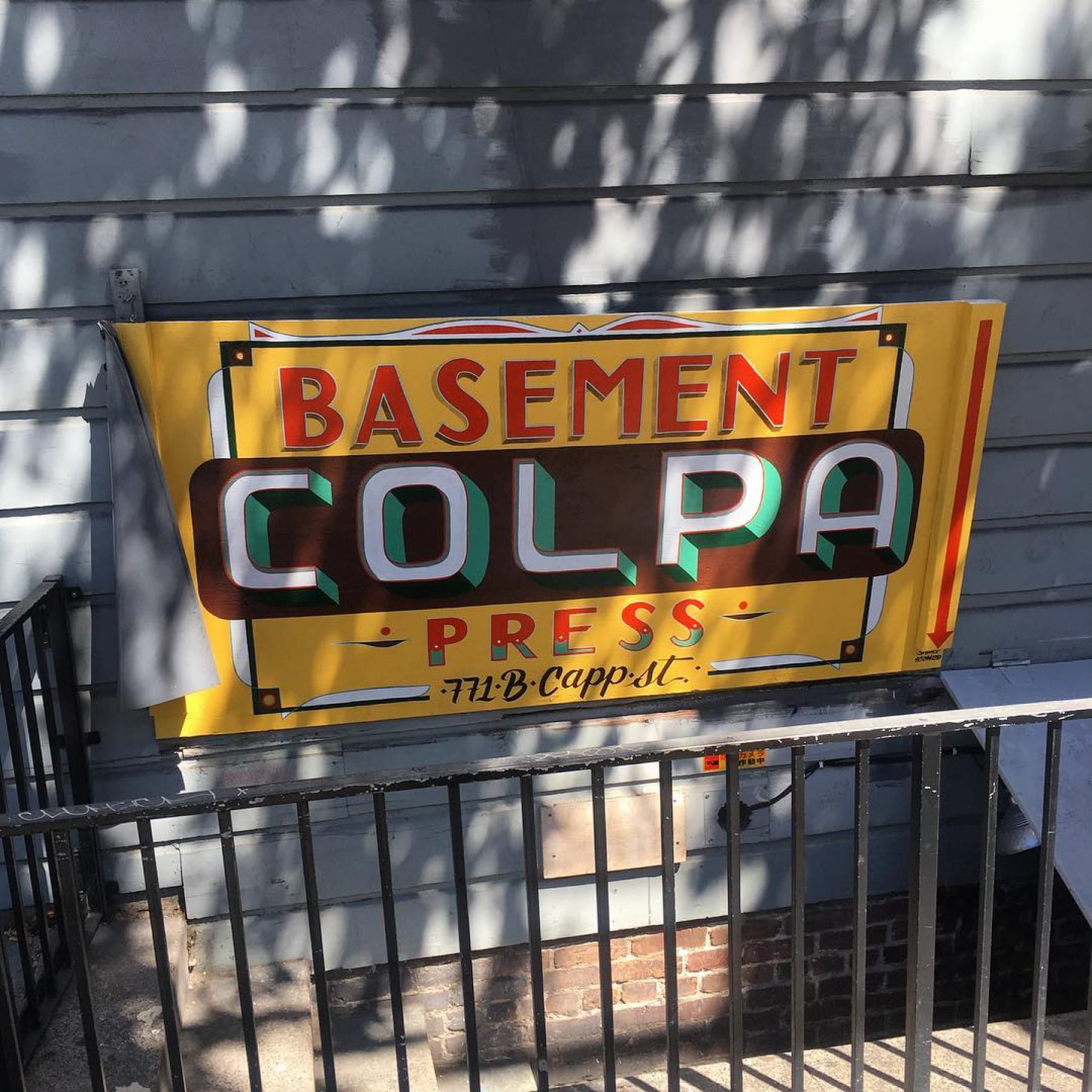
Above
Custom signage for
Colpa’s store front
How have the last few weeks or months shaped or impacted your practice?
LA: It’s definitely changed the way we work together. David and I usually work M-F in a studio in the Mission district called The Basement, that we share with artists Mitsu Okubo, David Bayus and Ross Waitman. Right now, David and I are both working from home and focusing on design jobs. I try to go into the Basement once or twice a week to print and ship out orders while doing my best to stay home. It’s hard. We usually kick so many ideas around that sometimes it feels like we are just 2 independent contractors, so we try to check in every few days and sort of map stuff out. As for publishing, I’ve been printing in the studio and taking stuff home to finish it. Our newest book OCULTAS, was made this way.
DK: I’ve been keeping a similar schedule to Luca, going into the studio on the days that he’s not there to work on design projects and to draw while watching gems from our massive VHS collection. At home I’ve been reading, trying to learn Japanese, teaching myself to carve wood, and doing research for new projects--anything to take advantage of less required screen time. The biggest shift to my practice has been a return to more tactile analog making and an appreciation for the objects around me. Doing so much cooking, I’ve become really attached to a Japanese kitchen knife that is beautiful to look at and does its job flawlessly. Spending hours woodcarving has also changed the way I look at all of the handcrafted objects in my house. I hope to continue this search for craftsmanship in my own practice.
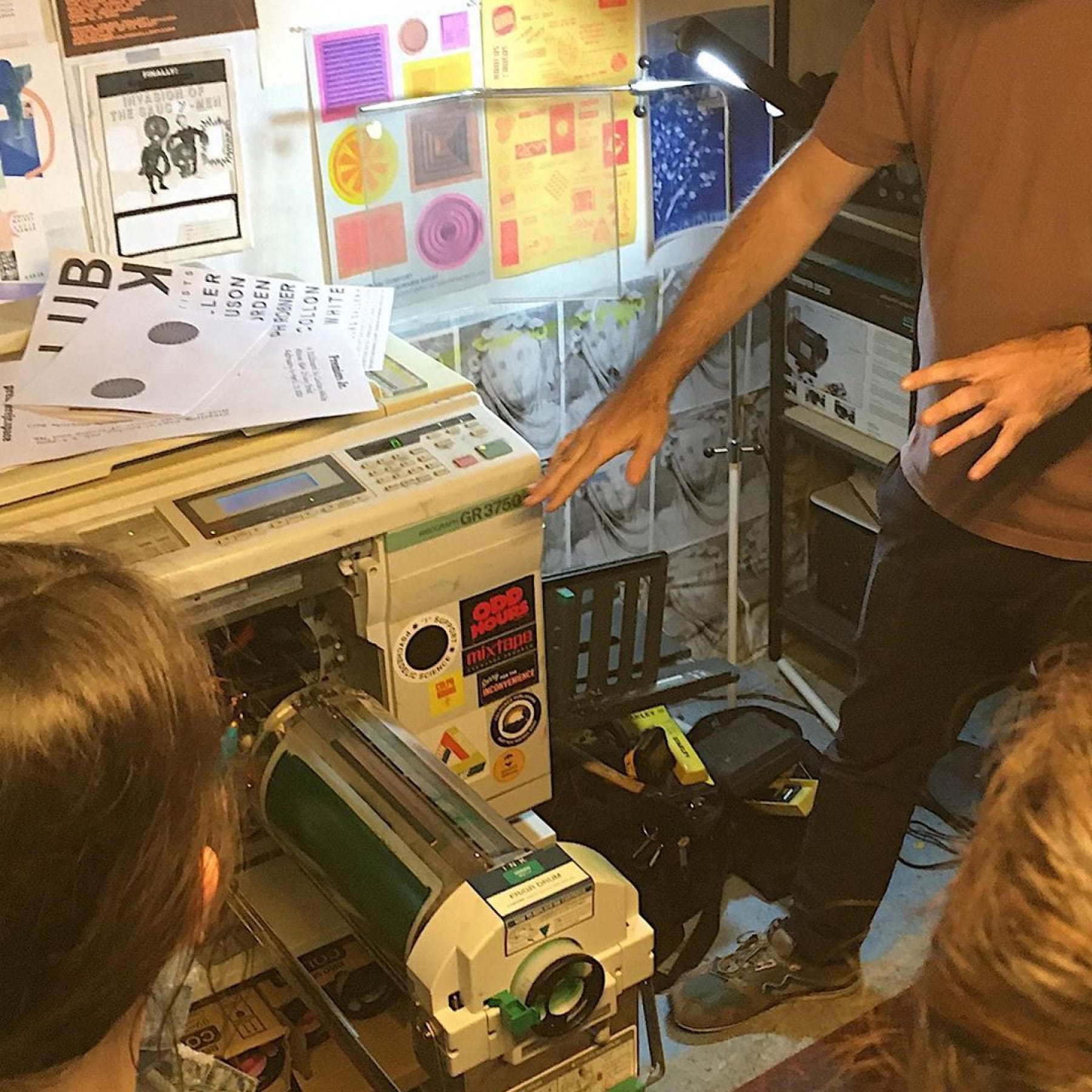
Above
Colpa's Riso printer
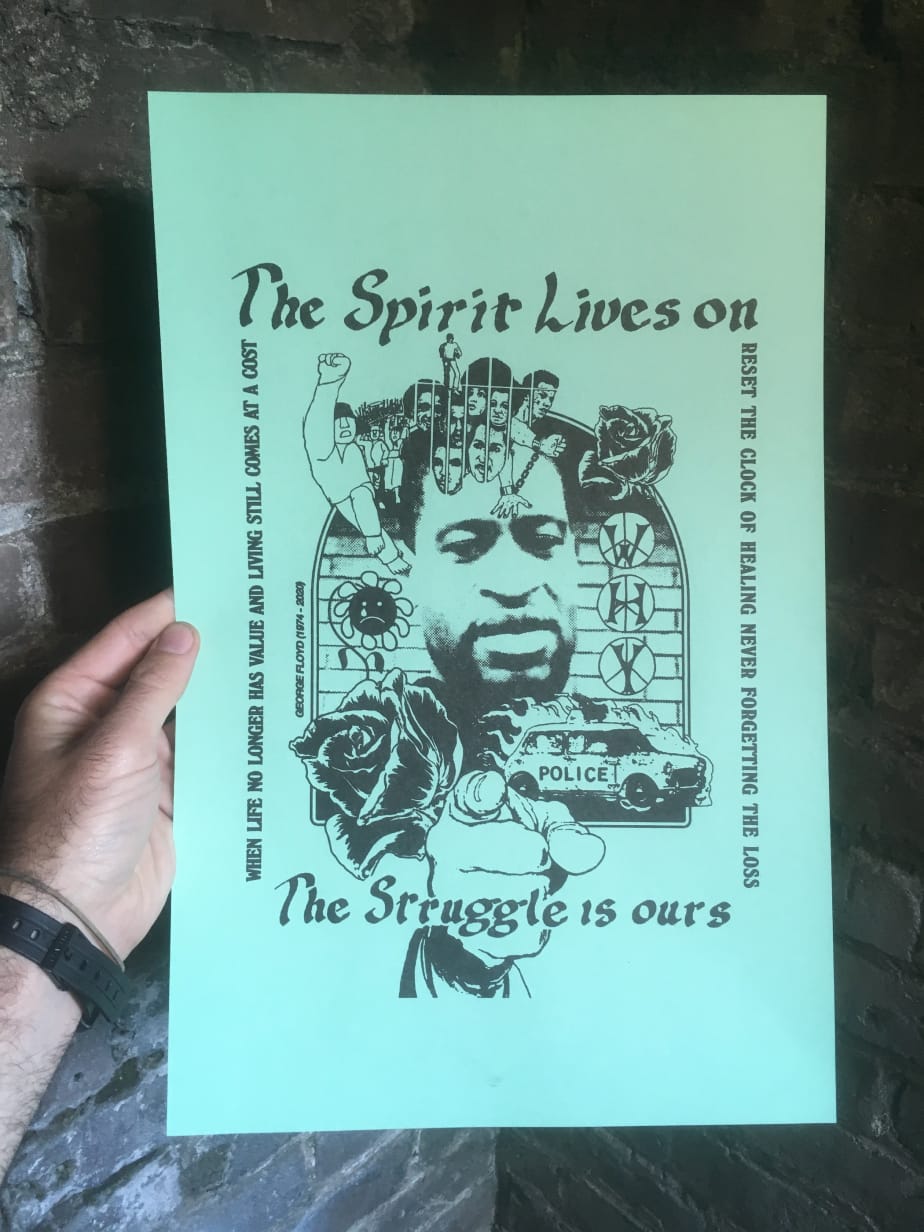
Above
Colpa offers free printing services
for movement organizers
Artwork: Brian Bizier
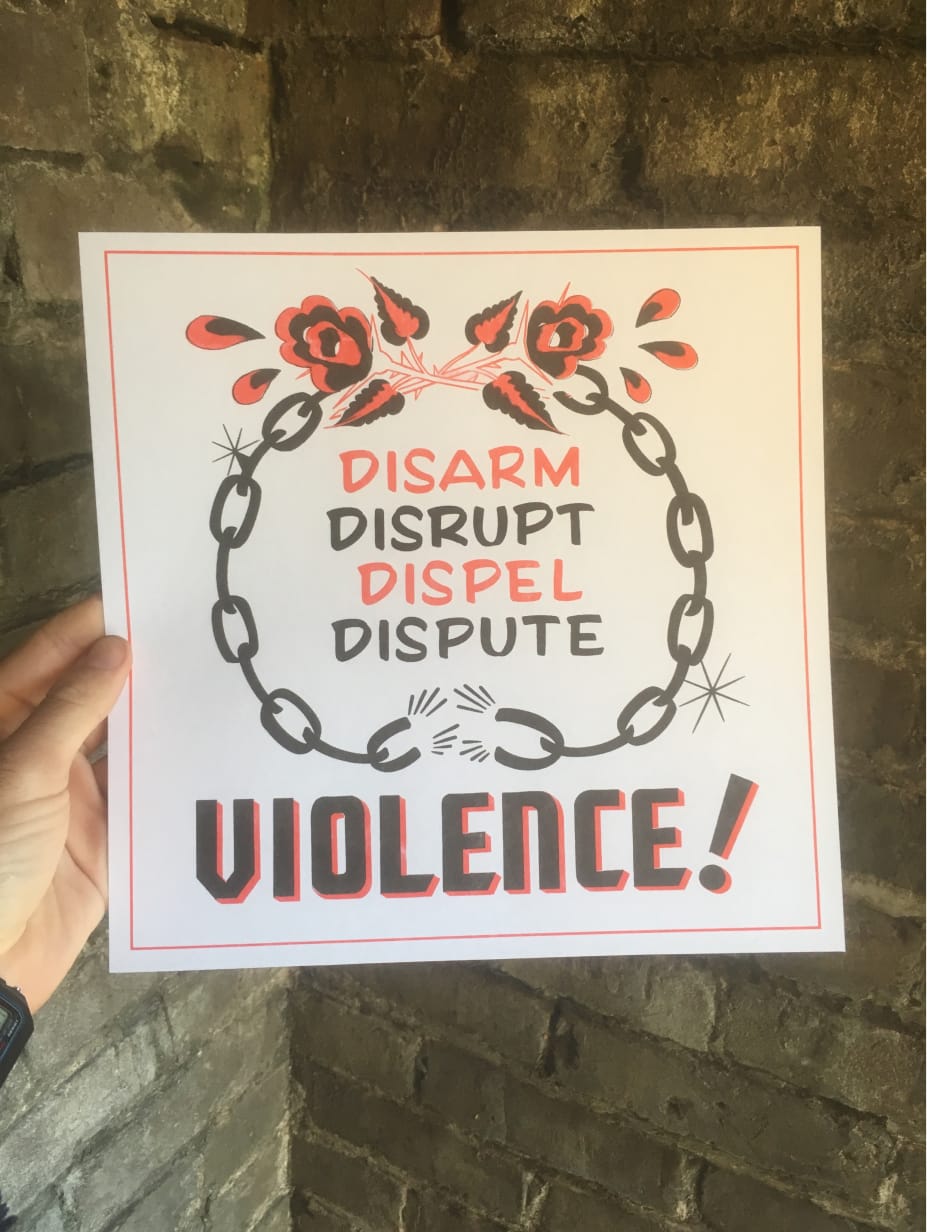
Above
Colpa offers free printing services
for movement organizers
Artwork: Lauren D'Amato
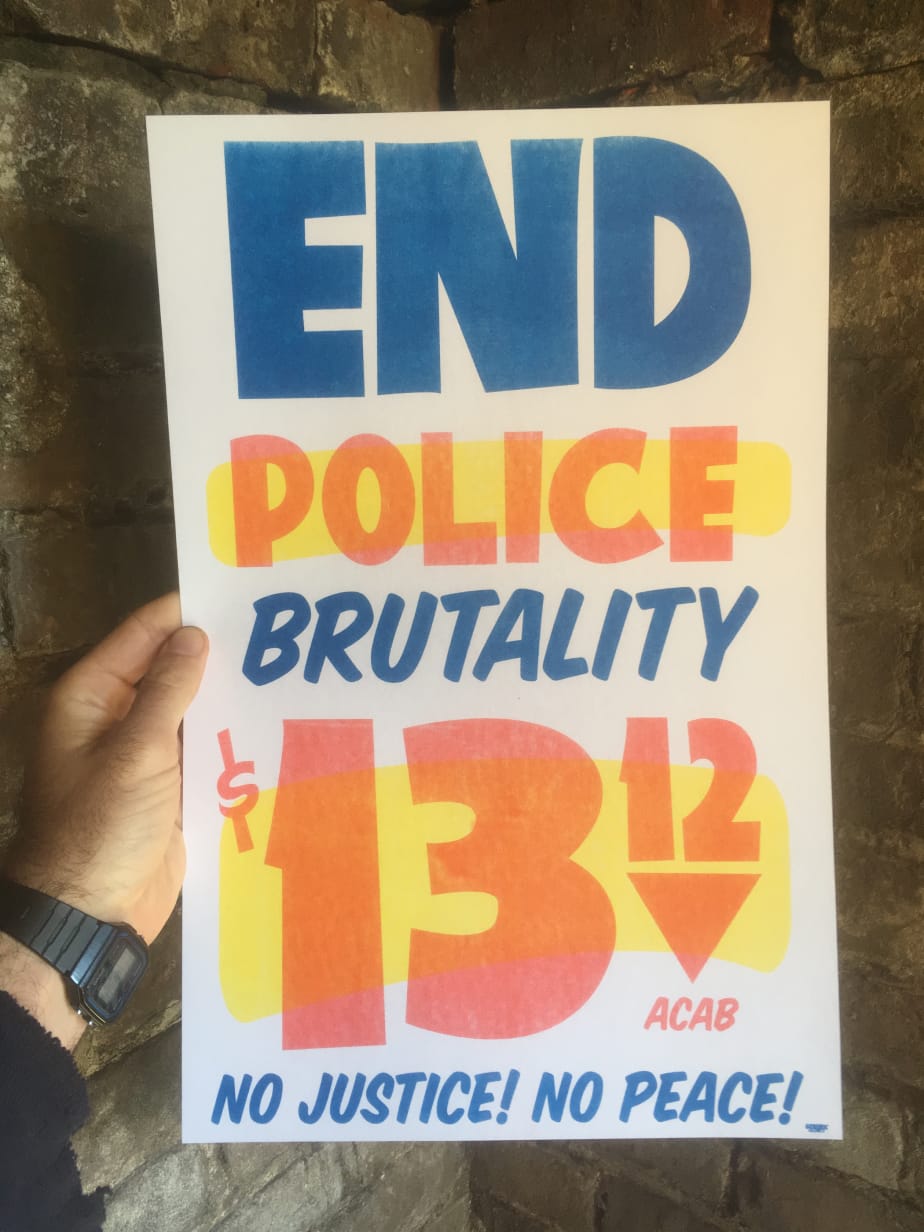
Above
Colpa offers free printing services
for movement organizers
Artwork: Paul Flores
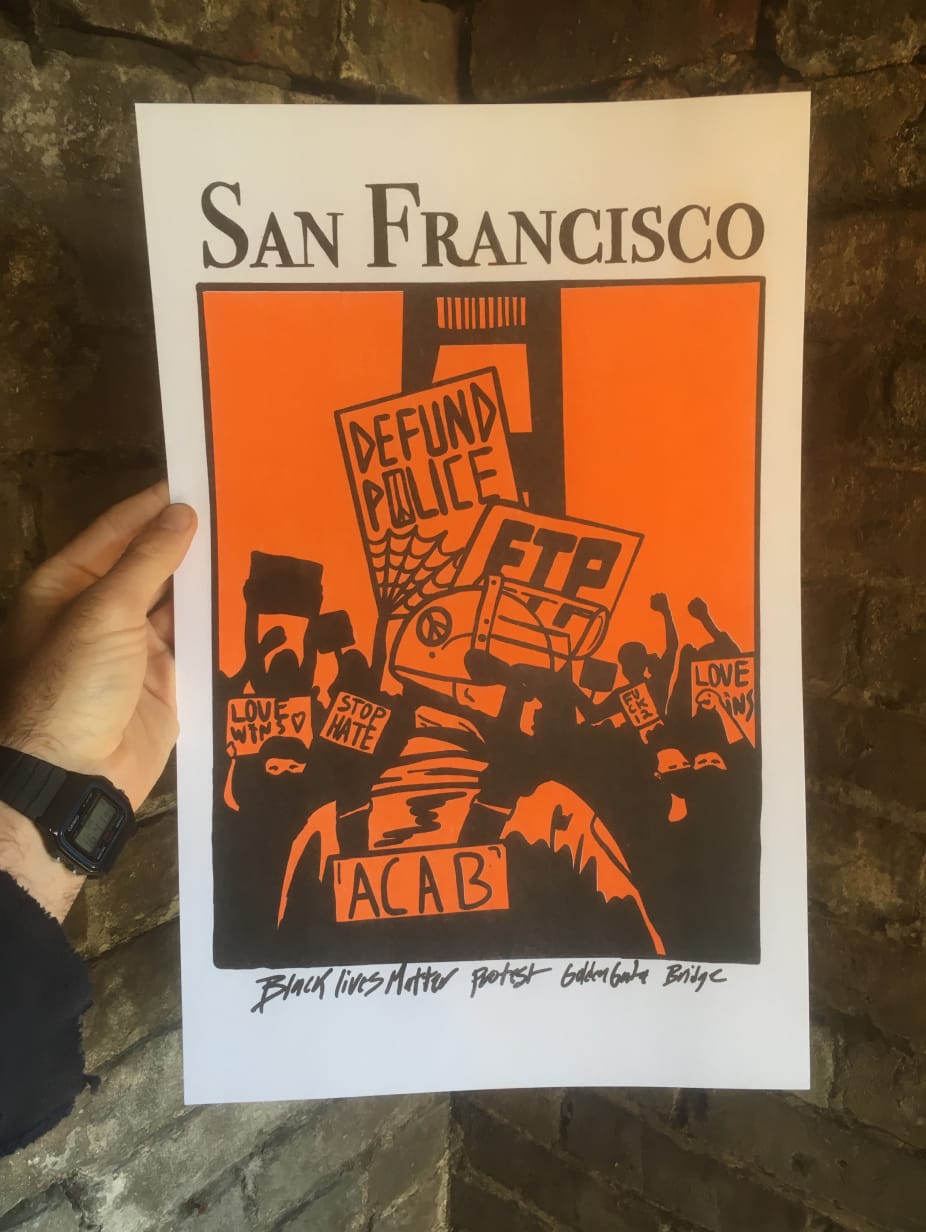
Above
Colpa offers free printing services
for movement organizers
Artwork: Vince Duran
If we, as artists, can't adapt to moments like this, then who can? ”
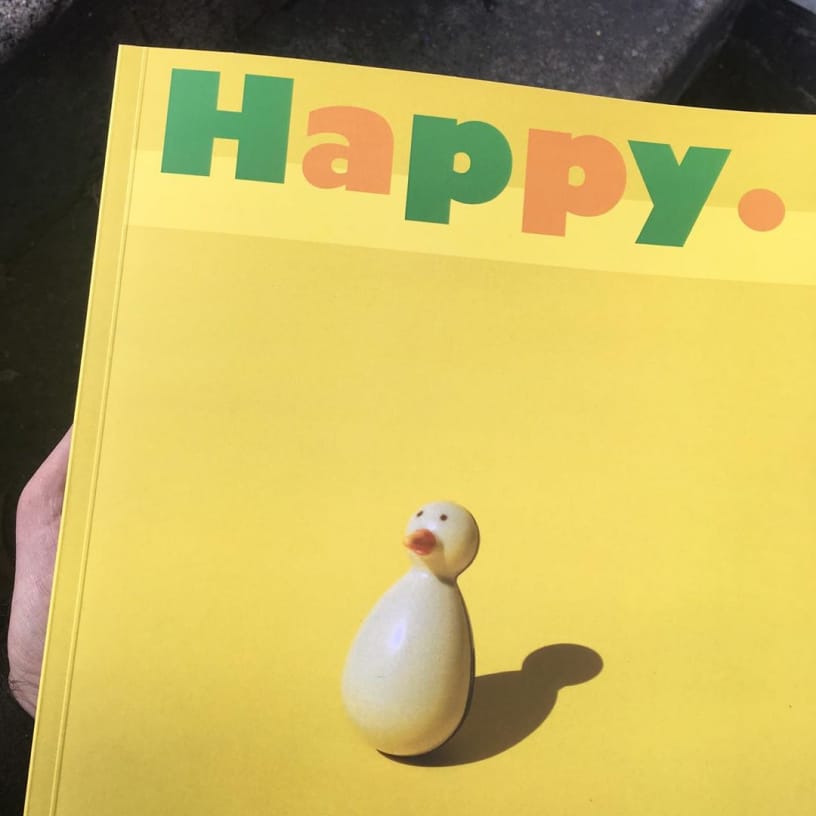
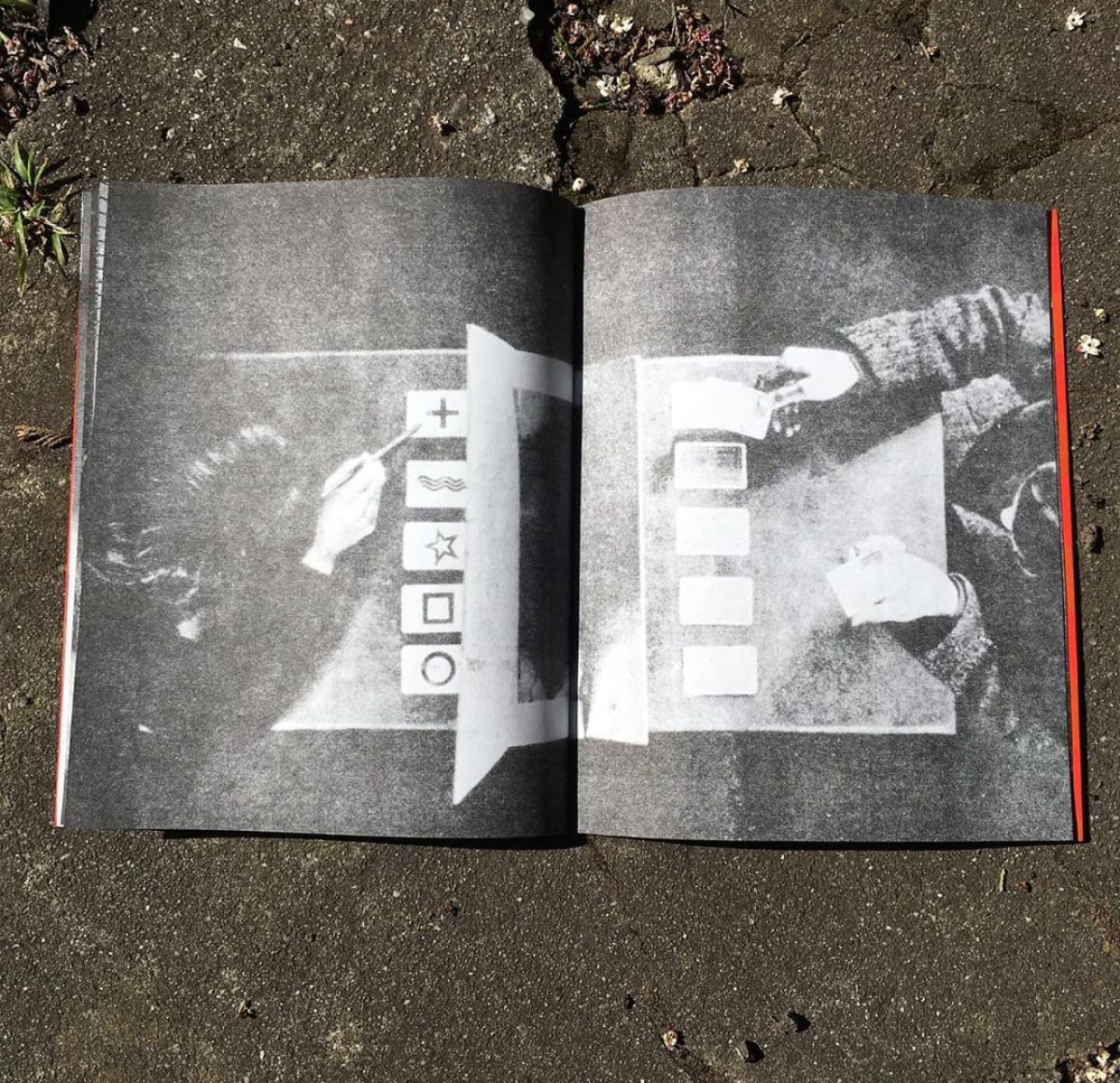
Above
OCULTAS – a collection of images
originally gathered for a
commission at SFMOMA
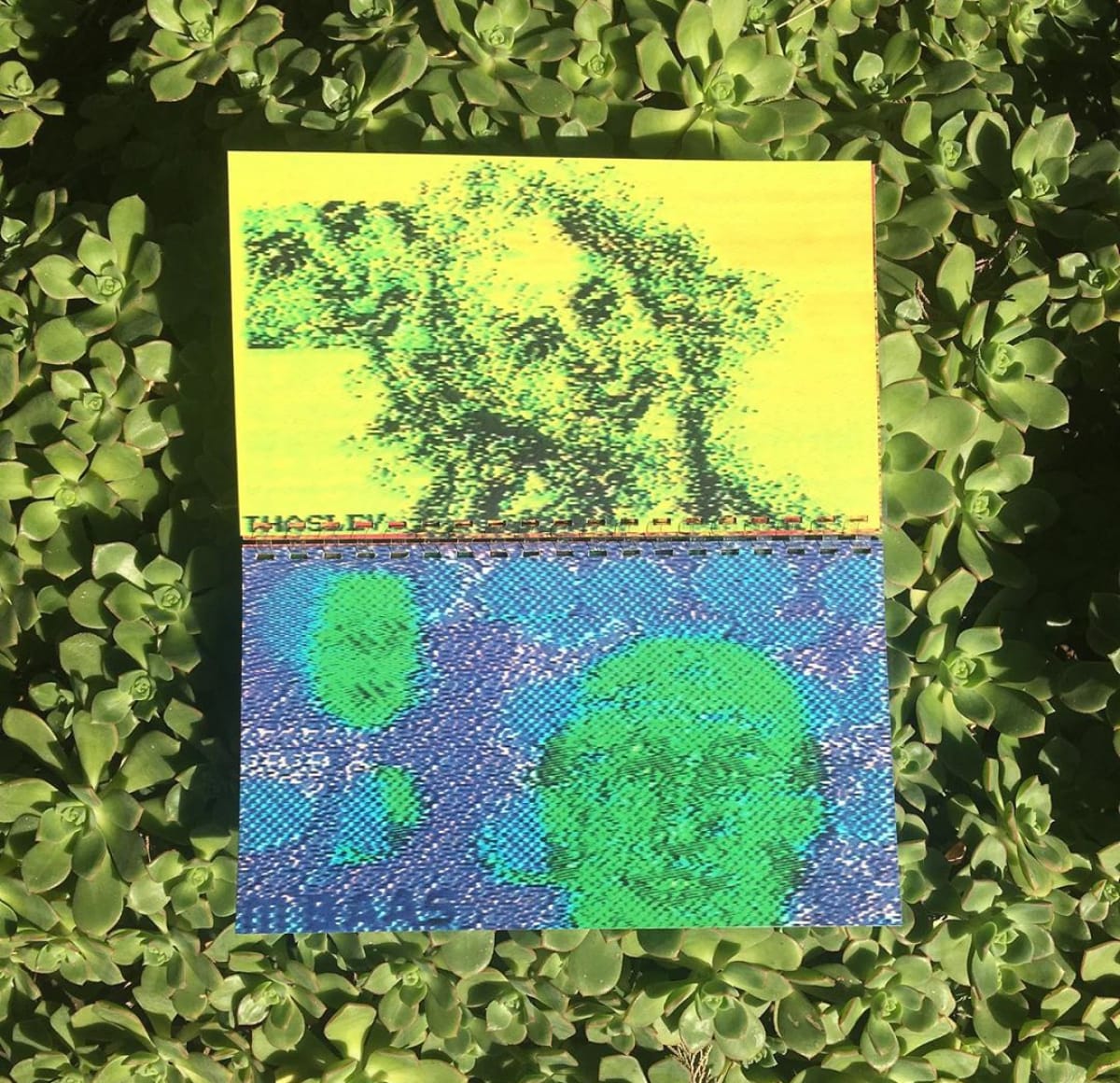
Above
Video Paintings by jichaeljmensen
for the LA Art Book Fair
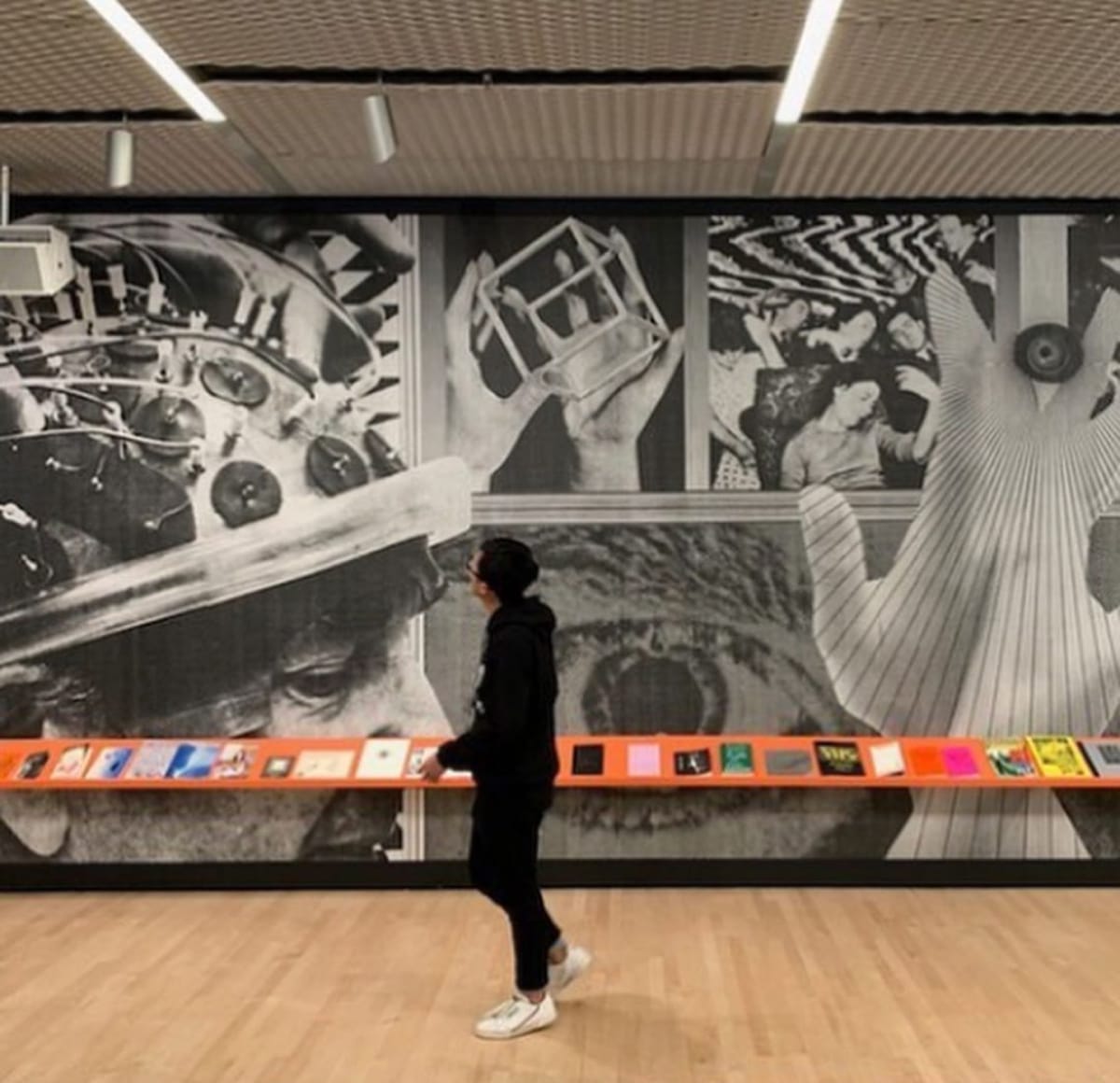
Above
Printed PUBLICS at SFMOMA
How are you coping at home?
LA: I can’t speak for what other people should do. I think every reaction is a valid one. If you want to take this time to work, then that’s great. But if you also find yourself feeling overwhelmed with grief, I think that is just empathy and the world could use a lot more of that. I’ve always been a head-down sort of work on my own shit kind of person and this experience has really forced me to sort of get off the hamster wheel and just slow down a bit. I’m not saying it’s been good, but I do find comfort in that. Going back to being a human who notices things. I try to keep a routine but I fail a lot. And I love talking to friends, though there is only so much Zoom and Facetime a body can take.
DK: I agree with Luca that there is no wrong way to get through this quarantine. Do what feels right for you, and be cautious of those offering unsolicited advice. For me, it’s important to stay connected to people by any means available. I’m not personally a big fan of Zoom or social media, but I’ll talk on the phone for hours. It’s been a really great time to reconnect with people from my past, and to check in on those who I feel might be going through a particularly rough time. I think hearing a human voice is really important. I’ve been trying to keep a regular schedule or routine because that’s what makes me feel safe or in control of a situation. Also, an hour in the sun changes my mood drastically. But most importantly I’ve been trying not to analyze my thoughts, desires, or actions too much during this time.
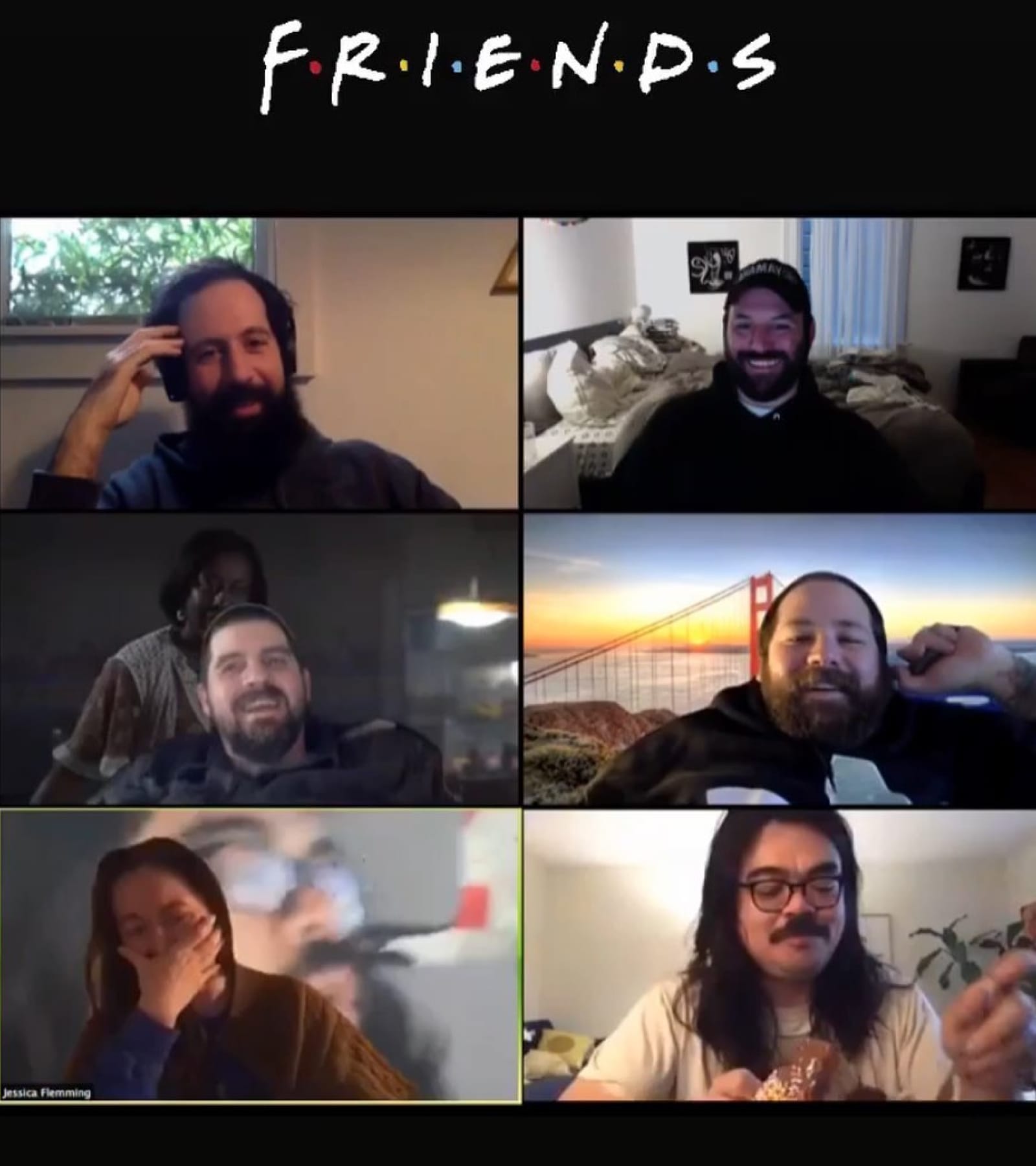
Above
Zoom meetings with Friends
What has inspired you recently?
LA: Just skating around. I was researching a good point-and-shoot camera because I’ve been going on these long rides and wanting to take pictures, so after asking some photo friends, I ordered one and it came but it was broken. Anyways, I asked some more friends and my friend Alex asked me if I had ever heard of a half-frame camera and I hadn’t. Half-frame cameras, for the most part, use 35mm film but split the frame in half by only advancing half of the frame every time you take a photo. Immediately I was like, oh like a book spread, and then I thought, this is the best challenge ever. So if you have 36 exposures in a roll, and you do an in-camera edit, that’s a 72 page book right there.
I work with film a lot and how it changes geography and location. I wanted my next book to be a follow up of my book Here we are again, running out of time which was about films that were shot, or supposed to be, in SF and I’m thinking I’m going to visit the locations from that book to shoot them on this camera. There is something about the in-camera edit, the way the camera looks like a video camera, and the way it naturally puts the book in spreads, that I think would be perfect for a follow-up. This is sort of what I was talking about before. Thinking of the best way to make something and sort of working back from there.
DK: The way the Bay Area art and design community is dealing with the situation has been really inspiring. I think artists, especially in the Bay, are uniquely equipped to adapt and survive change, and they’re proving it right now with new projects like this website. Camaraderie is the key for us all.
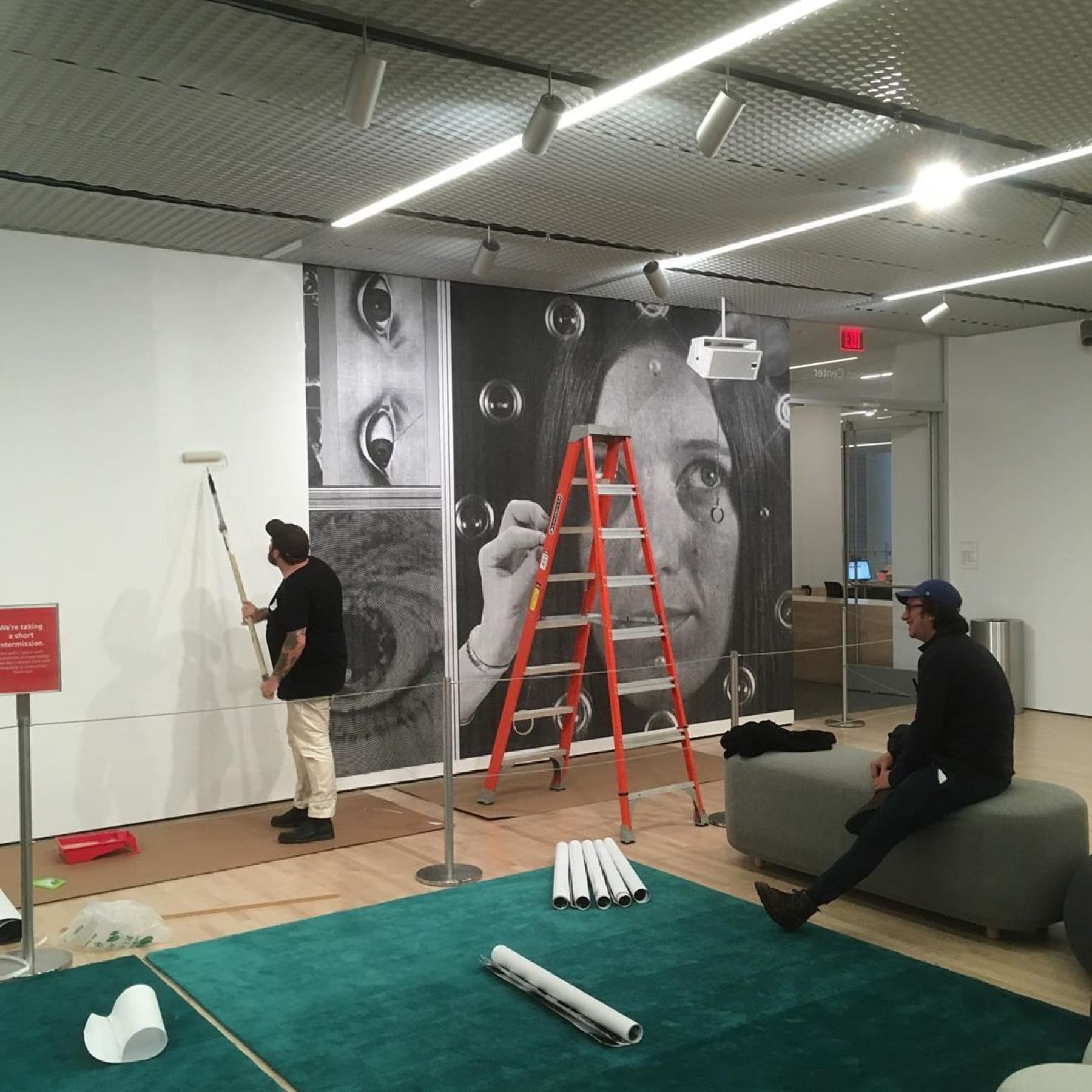
Above
Installation of a collage for the Printed
Public exhibition at SFMOMA
How can people support you?
LA: Our income relies heavily on book sales so if people see something on colpapress.com that they like, now is the time to buy it! But I know it’s a very difficult time for people financially, including myself, so I try to post stuff online that I like but maybe can’t afford right now. We are @colpapress on IG.
Also, we are working from home and taking on new design work, while printing and shipping twice a week so feel free to reach out to us at hello@colpapress.com if you need help with any of that.
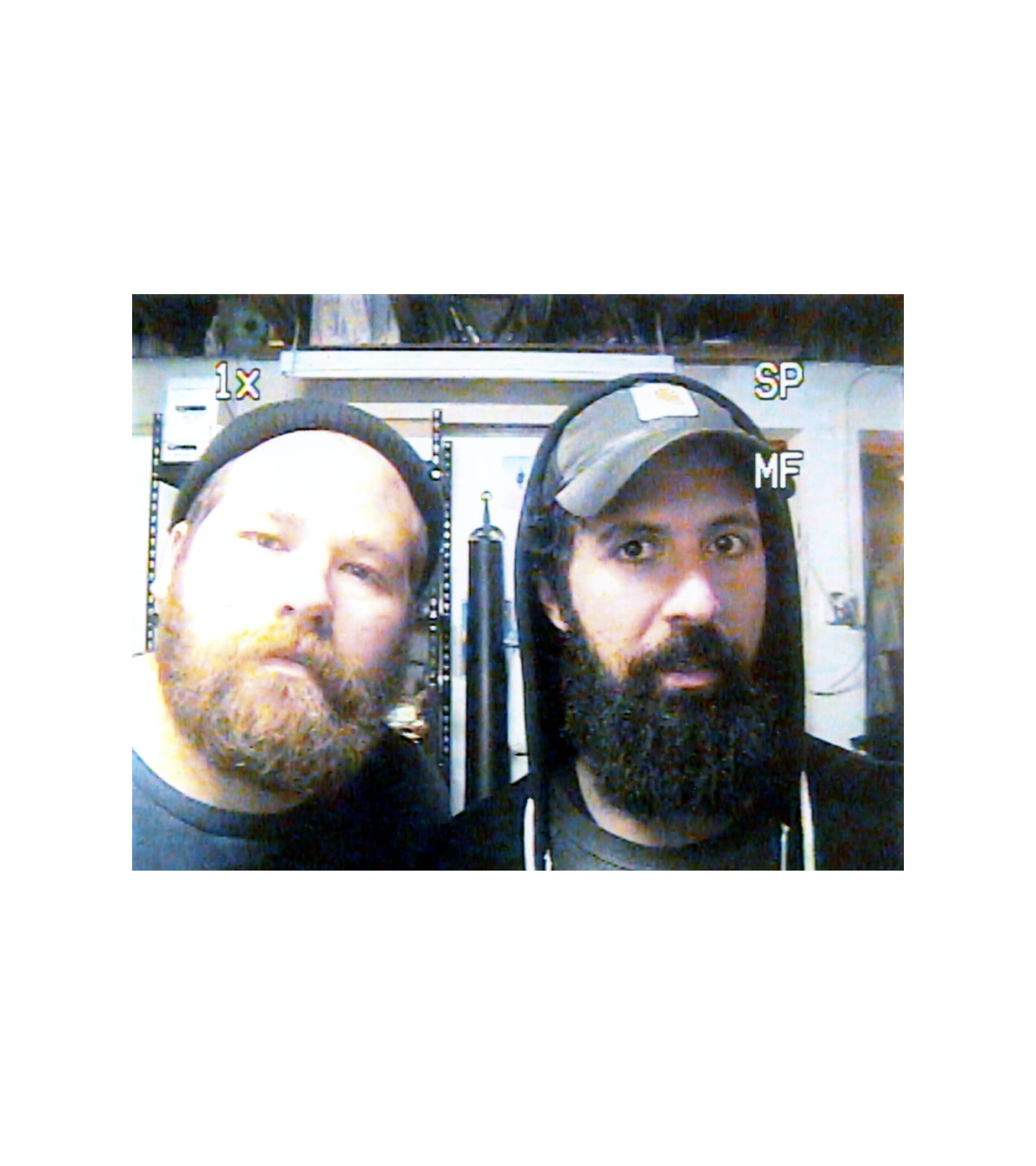
Above
Luca and David together